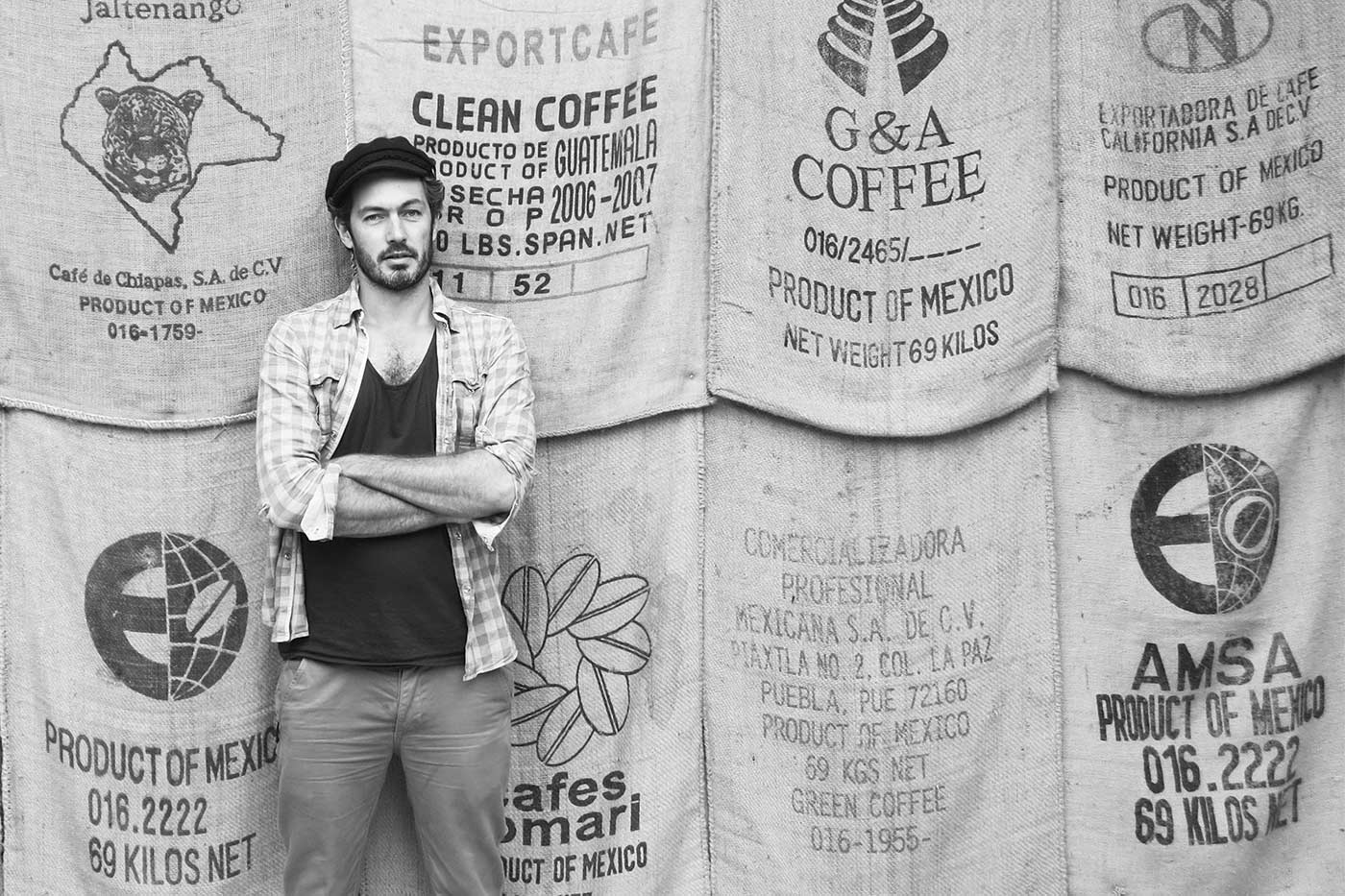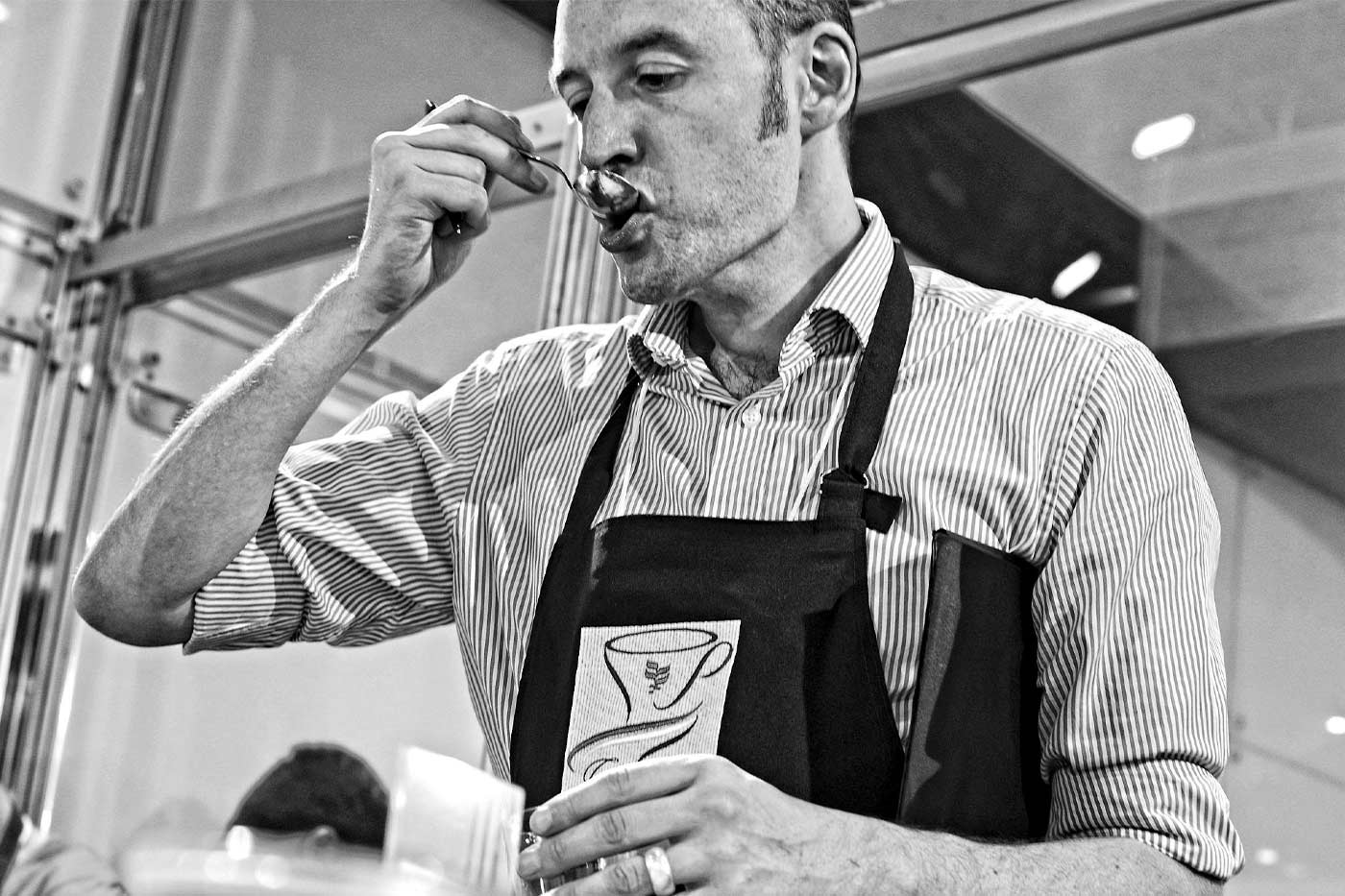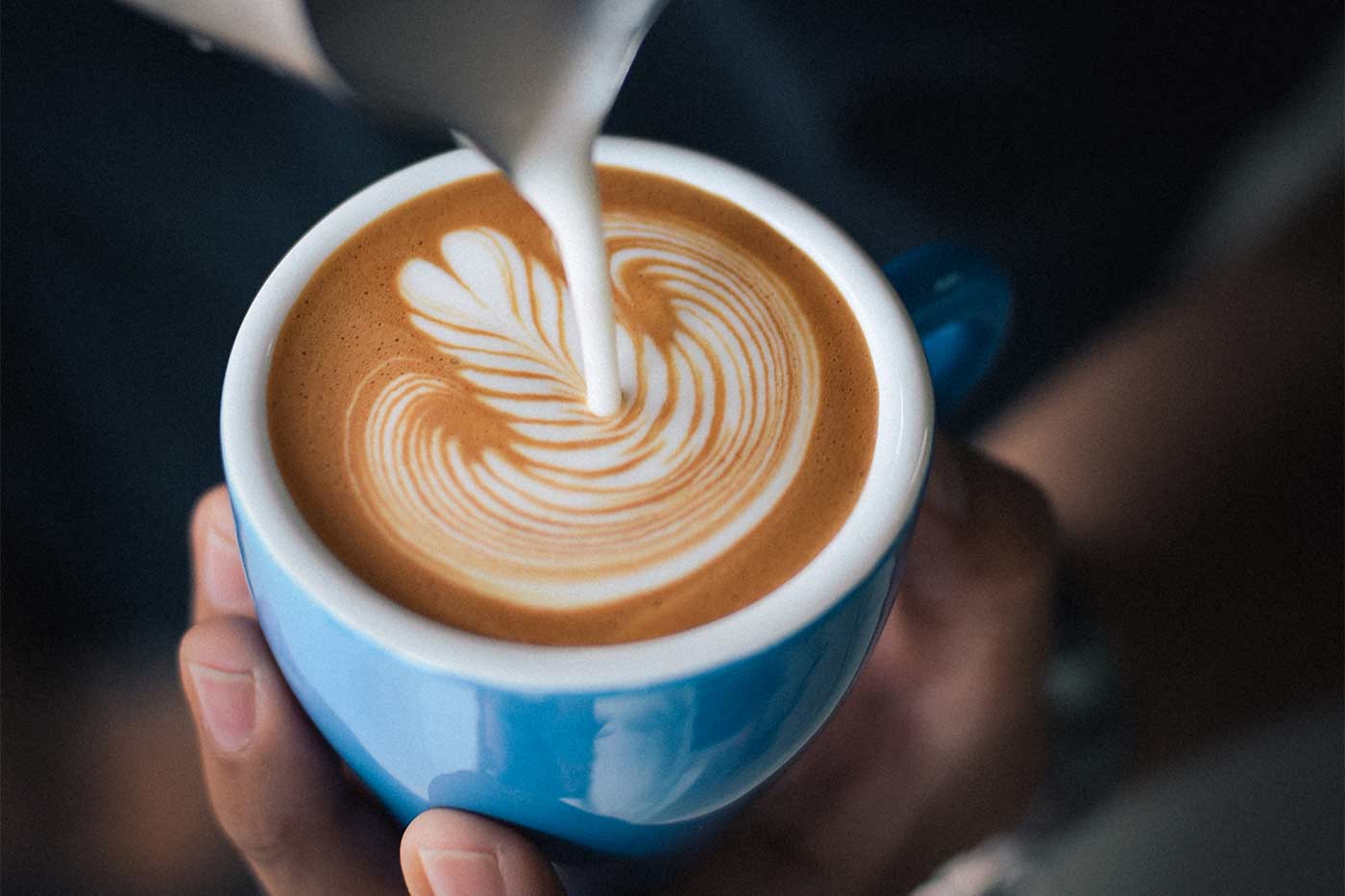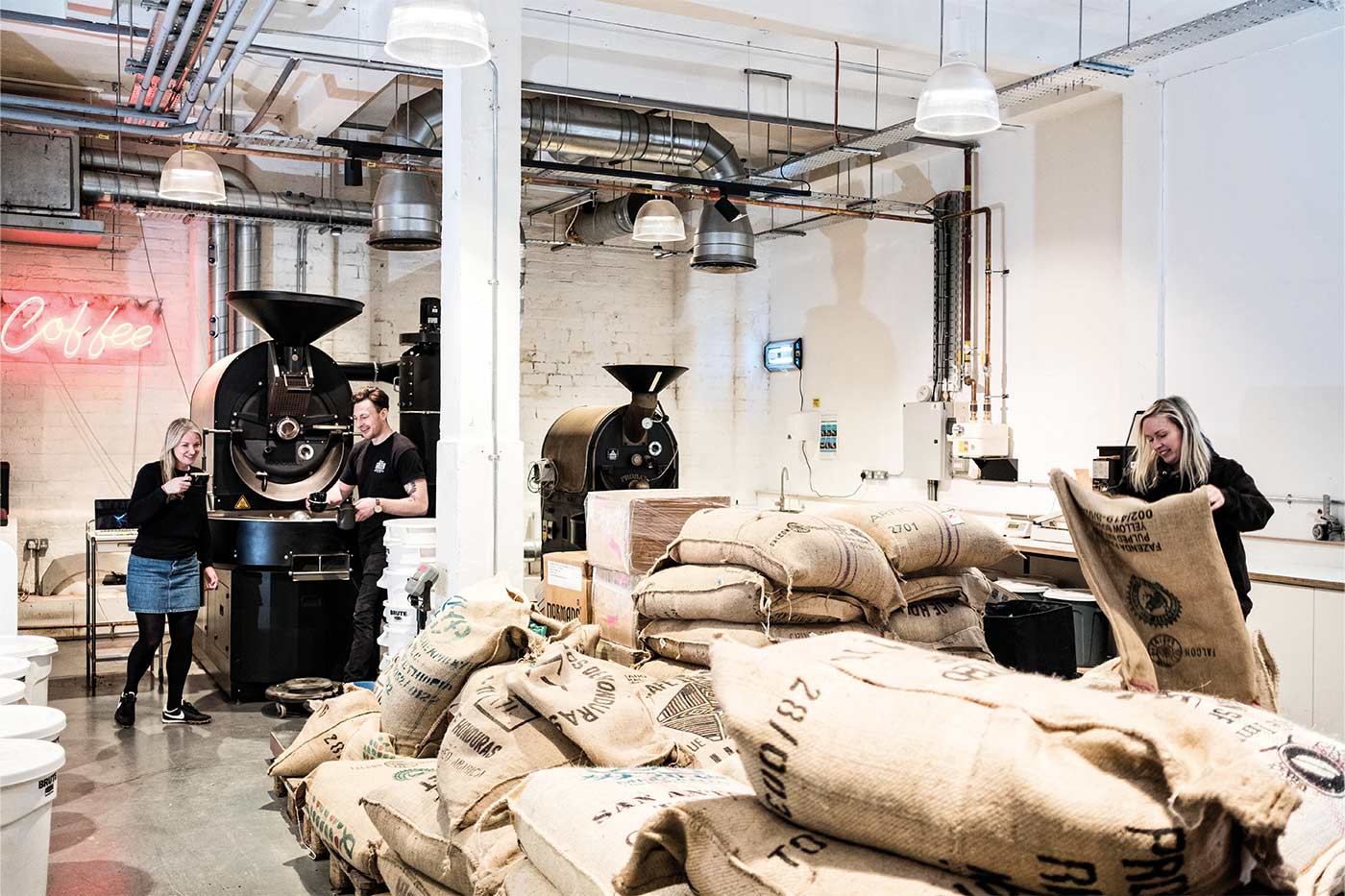Infused coffee is the latest roastery trend, yet the processing method that promises to unlock new levels of flavour has divided opinion among the pros. Selena Young asks two Q graders for their verdicts
What is infused coffee?
To be clear, we’re not talking about the “coffee infusions” sold in big-chain coffee shops: extra-hot skinny hot cross bun lattes this is not. This is a processing technique used at origin, where coffee farmers introduce ingredients such as fruit pulp, oils and wine yeasts during anaerobic fermentation of green beans.
Incorporating these elements manipulates the flavours associated with specific varieties and origins, altering the profile of the beans and unlocking further levels of flavour.
The method has been used by producers in the wine and beer industries for decades, but it’s pretty new in the speciality coffee sphere.
The fermentation fan
Matthew Wade, Q grader and owner of Shropshire’s multi-award-winning roastery Hundred House Coffee, supports fermentation. He explored the subject in a series of interviews with leading industry figures, who included Dave Stanton of Crankhouse Coffee and SCA UK Cup Tasters Champion Michael Bell.
The interviews coincided with the release of Hundred House’s own line of infused beans – the Freak & Unique collection – which sold out within weeks.
‘For the infused lots we worked with experimental farmers in Colombia, who produced them using a combination of anaerobic fermentation, honey processing and infusion.
‘When the coffee cherries were placed in fermentation tanks, CO2, wine yeast and fresh oranges or strawberries were added. After 72 hours of fermentation, the cherries were depulped and put on drying beds until they reached optimum humidity.
‘We found the fruit infusion added an extra dimension to the flavour profile of the coffee. I don’t profess to be an expert on fermentation but, in my experience, it has the power to take simple coffees and turn them into impactful, complex coffees.’

Profitable avenues
Many in the industry think this innovation provides an exciting and potentially profitable avenue for those coffee farmers who grow lower-grade cherries (which fetch lower prices), as infusion increases the value of the coffee by improving its flavour. And if farmers intercrop, they can increase profit further by using fruit, flowers and herbs grown on their own farms.
‘Our infused coffees are of the common Castillo varietal, which is high yielding and rust-resistant. I think it’s great that farmers are taking regular varietals that aren’t Geishas or Tabis and making something special out of them. It makes my job simpler because the beans are easier to control when roasting. We can bring out their sugary flavours and go further with development in the roast.
‘Infusion can also remove some of the pressure on roasters as when you order an exclusive lot, prices are high and the volumes low. The beans are very susceptible to heat, so roasting can be nerve-wracking,’ says Matt.
In the Freak & Unique collection, the orange-infused beans offer notes of tangerine, passionfruit and vanilla, while the strawberry-infused beans yield the flavours of rhubarb and custard sweets, strawberry ice cream and jasmine.
‘It’s like strawberry Nesquik with lots of candied flavour, but also the extreme layers of jasmine you’d typically find in an Ethiopian coffee. You definitely wouldn’t associate it with a Castillo varietal,’ says Matt
The cautious optimist
The cautious optimist John Thompson, Q grader and founder of Edinburgh’s Coffee Nexus training lab, agrees that coffee infusion offers an opportunity for coffee farmers to experiment.
‘Ultimately, it’s the coffee producers decision to do this, so if they have the desire, can afford to do it and find a market for it, I’m 100 per cent behind them making that decision for their business.
‘However, as a buyer, I see less value change for producers in adding ingredients to what is already high-quality green coffee. There’s even a risk with this category of coffee that the quality will be diminished. However, there’s loads of value in taking innovative steps with medium-quality coffees that are borderline speciality.
‘In some parts of the world, there’ll be producers who could definitely have fun with these novel processes. In some areas of Brazil they’re very active and willing to experiment, and I’ve seen some unusual additions that have added real value to the coffee,’ says John.
Critics and competition drama
Critics have raised some interesting points regarding infused coffee’s authenticity, suggesting that tampering with the cherries disrupts the natural flavour of the beans. Some go as far as to suggest they shouldn’t be considered speciality as they would have scored lower without infusion.
Infused coffee has also been banned in most mainstream coffee competitions such as the World Coffee Championships, Brewer’s Cup and Cup of Excellence (at which John is a head judge).
‘In competitions like Cup of Excellence you’re not allowed to enter any infused or adulterated coffee,’ he explains.
‘If there is a fermentation it has to have been the result of microflora that exists within the environment. There have been instances of people in competitions using coffee that, when put through chromatography, showed an unnatural spike in aroma compound, indicating that something had been added. They were disqualified.’

Should it stay or should it go?
‘I think people should give us a break and let us see where it goes,’ responds Matt.
‘To quash it now, just as farmers are exploring the possibilities and having fun with it, would be wrong. It wasn’t long ago that most farmers had never tasted their own coffee or sold direct to coffee roasters. We’re still a young industry that is playing catch up with what the wine world has been doing for thousands of years. I think we should be open to exploring this new avenue.’
So can we unashamedly enjoy a cup of infused coffee?
‘As long as the consumer understands the background, is taken on a sensory journey and isn’t overwhelmed by the process, it’s great,’ says John.
‘In any food or beverage sector, there’s going to be a group of consumers who are looking for new and innovative products. I’m sure this will capture some coffee drinkers in the speciality market, but there are a lot of speciality coffee drinkers who prefer traditional flavour profiles. Personally, I wouldn’t make these heavily processed coffees the majority offering in a roastery, but I still think they’re nice coffees.’
Infused coffee: fad or future? Read more coffee-related features.


